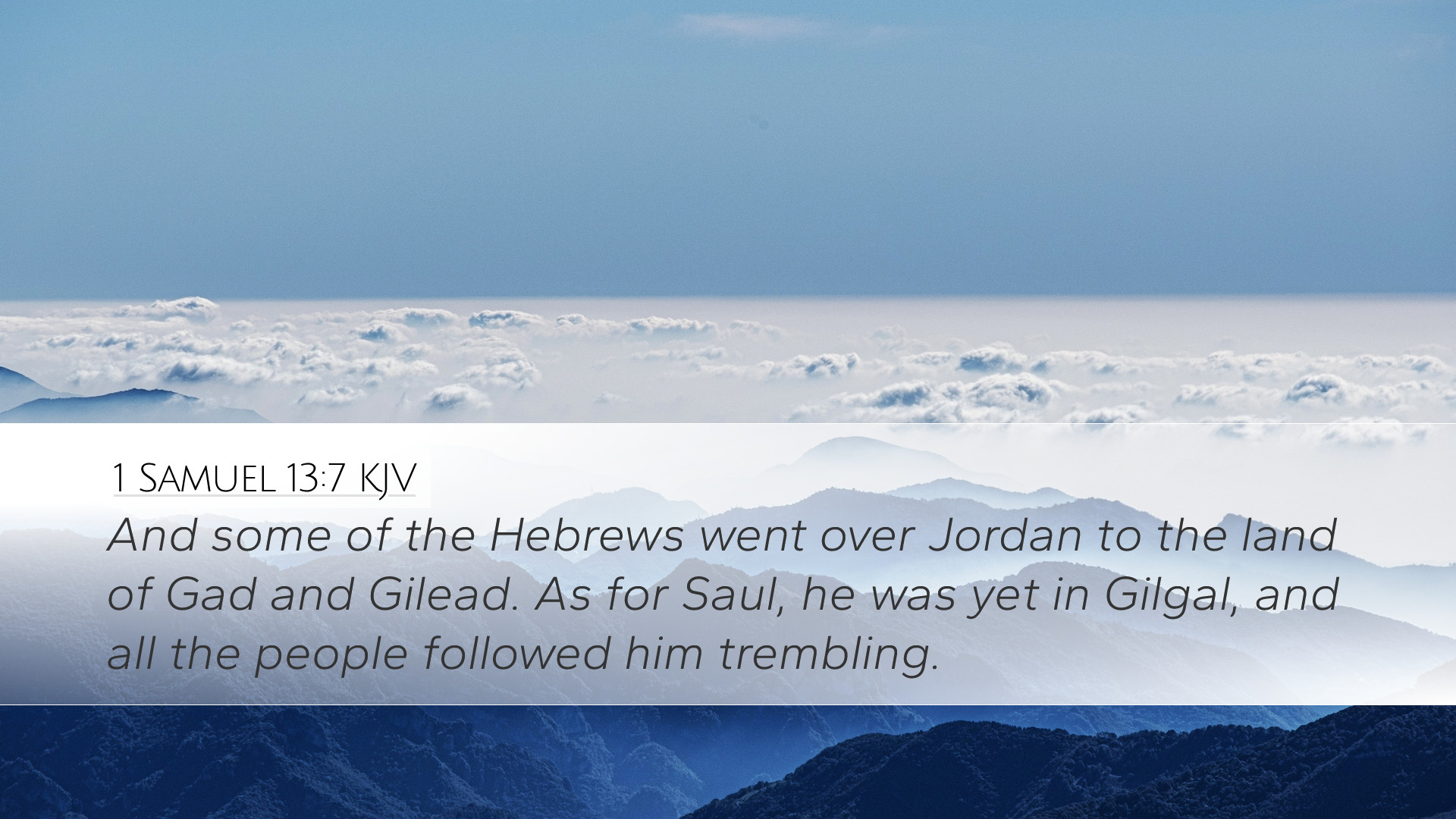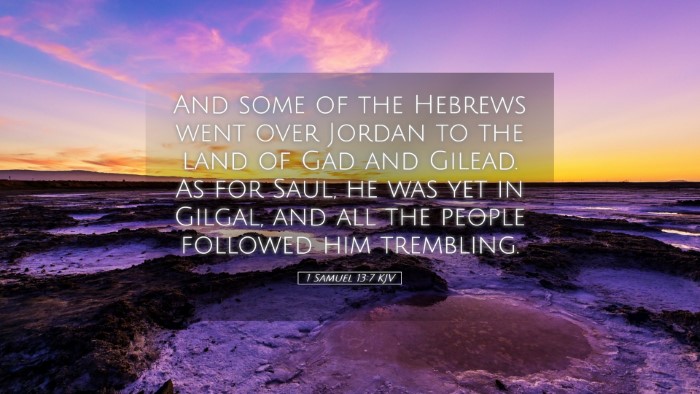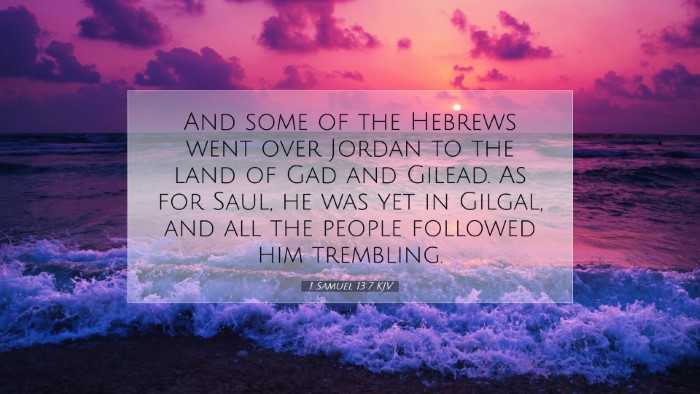Commentary on 1 Samuel 13:7
Verse Context: 1 Samuel 13:7 states, "And some of the Hebrews crossed over the Jordan to the land of Gad and Gilead. As for Saul, he was still in Gilgal, and all the people followed him trembling."
Understanding the Context
This verse falls within a critical narrative where Saul is confronted with significant challenges as king. The Philistine threat looms, and the people of Israel experience fear and uncertainty. The act of crossing the Jordan signifies distress among some Hebrews, leading to a division of loyalty and fear regarding Saul's leadership.
Insights from Matthew Henry
Matthew Henry emphasizes the gravity of the situation as Saul faces the pressures of leading his people amidst impending battle. He notes:
- Fleeing from a burden: Many Hebrews retreating highlights their fear, underlying the challenge of rallying a nation under threat.
- Saul’s Position: Henry points out Saul's precarious position in Gilgal, an area traditionally associated with spiritual significance and sacrificial rites.
- Public Fear: The trembling of the people reveals their lack of faith and reliance on God, a recurring theme in Israel's history.
Insights from Albert Barnes
Albert Barnes provides additional commentary on the societal and military implications present in this passage. He observes:
- Desertion: The crossing of the Jordan indicates not merely physical departure, but a profound desertion of leadership; this illustrates a significant fracture within the Israelite ranks.
- Saul’s Response: Barnes highlights the struggle of Saul to maintain morale. A leader's worth is measured in such moments where his ability to inspire confidence is tested.
- Impending Doom: The trembling of the people is reminiscent of historical distrust in God's providence, signifying their doubt in Saul's capacity to lead them effectively against the enemy.
Insights from Adam Clarke
Adam Clarke offers a deeper theological perspective, helping to understand the greater implications of the passage. He suggests:
- Crisis of Faith: This incident represents a moment of crisis for Saul’s kingship and the faith of the people; it puts to the test the very foundation of Israel's divine calling.
- Leadership Dynamics: Clarke articulates how Saul's leadership is shown to be inadequate when faced with fear, a reminder of the importance of divine reliance over military might.
- Covenantal Context: The crossing of the Jordan not only highlights fear but also a break in the covenantal relationship, where faith in divine promise falters amidst human difficulties.
Theological Reflections
Reflecting on the insights from the various public domain commentators, we observe several critical themes relevant for today's scholars and pastors:
- Leadership in Crisis: The passage paints a vivid picture of what happens when leaders falter under pressure. It invites us to consider how we respond in our own lives to crises of faith.
- Faith and Fear: The trembling of the people underscores a common human experience—while fear can paralyze, faith possesses the power to mobilize. How can the church today foster an environment where faith triumphs over fear?
- Covenant Community: The communal aspect is significant; the acts of individuals ripple through society. The removal of some from the community through fear serves as a lesson for maintaining unity and trust in God's providence.
- God's Sovereignty: Even amidst Israel's tumultuous moments, God's overarching sovereignty remains. This verse is a reminder for believers to keep their eyes on divine providence, especially during challenging times.
Conclusion
The commentary on 1 Samuel 13:7 invites reflection on the nature of leadership, community, and faith in the face of adversity. As we explore the interpretations from respected commentators, we glean lessons that are timeless, applicable, and essential for our walk with God today.
May we, like Saul, be mindful of our reliance on God amidst challenges, and like the people of Israel, seek to pass through our fears into the assurance of His everlasting covenant.


